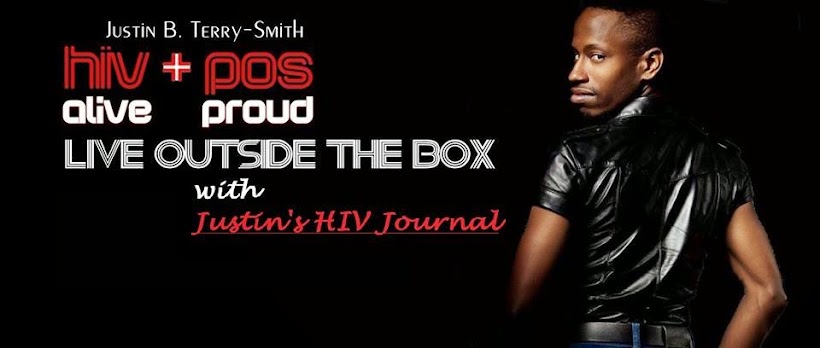
Justin B. Terry-Smith has been involved in LGBTQ and HIV Activism since 1999. He is an Air Force 9/11 Disabled Vet. Raised in Silver Spring, MD, he now lives in Albuequerque, New Meixco with his husband Phil. He writes an HIV/STI Advice Column for A&U Magazine, is a Contributing writer for thebody.com, a Life Coach and an Adjunct Professor. He has earned his Doctorate in Public Health with a concentration in Infectious Disease and his Masters in Clinical Mental Health Counseling.
Wednesday, September 30, 2009
Justin’s HIV Journal: H1N1 (Swine Flu)
Having HIV is hard enough but when you have to watch out for other diseases as well it make life all the more harder. I’m sure all of you have been bombarded with the media’s warning and coverage of the H1N1 virus, but the information needs to be widely distributed. Again I’m not a doctor and I got my information from the CDC website which I have sited. Please protect yourself. I’m also doing this for the people that are infected with diseases that compromise their immune systems.
According to the CDC (Center for Disease Control and Prevention), several studies have reported higher hospitalization rates, prolonged illness and increased mortality, especially among persons with AIDS. Remember AIDS is when your CD4 count is 200 or lower.
Also other diseases that compromise the immune systems, and especially persons with low CD4 cell counts or AIDS can experience more severe complications of seasonal influenza and it is possible that HIV-infected adults and adolescents are also at higher risk for novel influenza A (H1N1) virus infection complications. Some of there complications are opportunistic infections
There are certain things that you can do to that might prevent you from spreading or becoming infected with the H1N1 virus. Please frequently wash your hands, cover you mouth when you cough, and have ill people stay home to seek medical care. Also, you might want to minimize contact with others in the household who may be ill with novel influenza A (H1N1) virus.
Additional measures that can limit transmission of a new influenza strain include reduction of unnecessary social contacts, and avoidance whenever possible of crowded settings in communities where novel influenza A (H1N1) is circulating. If used correctly, facemasks and respirators may help reduce the risk of getting influenza, but they should be used along with other preventive measures, such as avoiding close contact with ill persons and maintaining good hand hygiene.
How do I know if I have the flu?
You may have the flu if you have some or all of these symptoms:
• fever *
• cough
• sore throat
• runny or stuffy nose
• body aches
• headache
• chills
• fatigue
• sometimes diarrhea and vomiting
*It’s important to note that not everyone with flu will have a fever.
Most people with 2009 H1N1 have had mild illness and have not needed medical care or antiviral drugs and the same is true of seasonal flu. BUT people that have diseases that effect their immune systems are at higher risk and will need medical care if infected with the H1N1 virus.
• Children younger than 5, but especially children younger than 2 years old
• People 65 and older
• Pregnant women
• People who have:
o Cancer
o Blood disorders (including sickle cell disease)
o Chronic lung disease [including asthma or chronic obstructive pulmonary disease (COPD)]
o Diabetes
o Heart disease
o Kidney disorders
o Liver disorders
o Neurological disorders (including nervous system, brain or spinal cord)
o Neuromuscular disorders (including muscular dystrophy and multiple sclerosis)
o Weakened immune systems (including people with AIDS)
What are the emergency warning signs?
In children
• Fast breathing or trouble breathing
• Bluish skin color
• Not drinking enough fluids
• Not waking up or not interacting
• Being so irritable that the child does not want to be held
• Flu-like symptoms improve but then return with fever and worse cough
• Fever with a rash
In adults
• Difficulty breathing or shortness of breath
• Pain or pressure in the chest or abdomen
• Sudden dizziness
• Confusion
• Severe or persistent vomiting
The H1N1 virus is like HIV in a way; it doesn’t matter where you live, what color you are, what your age is, or your creed it can infect you if you do not take the proper precautions to protect yourself and others.
P.S GO GET YOUR SEASONAL FLU AND H1N1 SHOT
Thank you
Justin B Smith
Justin’s HIV Journal
Subscribe to:
Comments (Atom)


